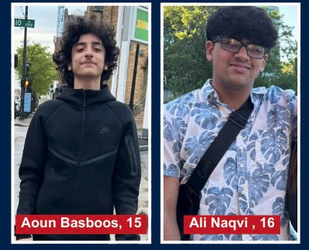
Cancer has been around for a long time but no one has a cure. Will 2024 be the year for a cure? Researchers have found over 200 types of cancer and not a cure for a single one. A doctor named Pinato said that research was still in process and would not be available to the public until they could correct it. Pinato also said that this could take a few more years until cures would be available for patients. Several cancer vaccines entered clinical trials across the globe. Researchers say that while experimental therapy is still in the early stages of testing, it may ultimately lead to a new treatment option for difficult-to-treat cancers, should the approach be effective and safe for everyone. Cancer cells can be resistant to most drugs, making tumors more difficult to treat.
Nearly one in two people in the UK will be diagnosed with cancer in their lifetime. A range of therapies have been developed to treat patients, including chemotherapy and immune therapies. However, cancer cells can become resistant to drugs, making tumors more difficult to treat, and scientists are keen to seek new approaches for tackling cancers.
“Preclinical testing in both cell and animal models of cancer provided evidence that new MRN therapy had an effect on the immune system and could be offered to patients in early-phase clinical trials. Several promising therapies received fast-track designation (FTD), like sotorasib (Lumakras) with avutometinib (VS-6766) for KRAS-mutated lung cancer and SLS009 for relapsed/refractory acute myeloid leukemia (AML). Numerous investigational new drug (IND) applications were also approved for novel therapies across various cancers, including ovarian, glioblastoma (GBM), pancreatic, and solid tumors”, stated Targeted Oncology. One of the most significant and still-relevant discoveries in cancer care occurred in the decades-long past. The first X-ray picture was taken in 1895. Radiation therapy was first used in 1899. The Pap test was introduced in 1928. Hormone therapy for prostate cancer was developed in 1941, stated the oncology news.
As the years flew by, research and discoveries in cancer diagnoses and treatments accelerated. This young century alone has brought innovations and breakthroughs that have saved lives and changed the course of care. The development of the leukemia drug imatinib in 2001 ushered in the era of targeted therapy. In 2011, the U.S. Food and Drug Administration (FDA) approved the first of many immune checkpoint inhibitors, followed by chimeric antigen receptor (CAR) T-cell therapy in 2017, as Immunotherapy took center stage.
But so much work has yet to be done. “Cancer is the second leading cause of death in the United States, and nearly 2 million Americans will be diagnosed with the disease this year. Still, cancer researchers are optimistic that in 2024 more people will benefit from cancer breakthroughs, including research that unlocks the biology behind cancer disparities, wider access to CAR T-cell therapy, and better access to clinical trials, stated a research doctor.







